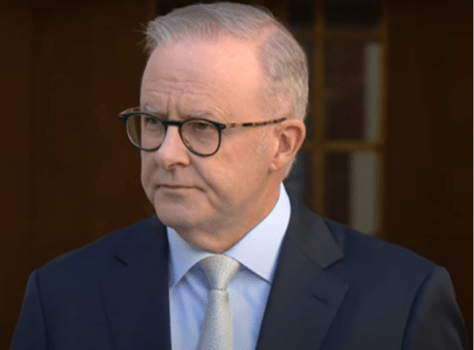Integrity and accountability are at the core of a new code of conduct for federal government ministers.
Released last week by the Department of the Prime Minister and Cabinet, the document sets out key principles required of ministers serving in the Australian Government.
“Ministers hold high public office and are entrusted with considerable privilege and power. The people of Australia are entitled to expect that, in the discharge of our duties, we will act in a manner that is consistent with the highest ethical standards,” says Prime Minister Anthony Albanese.

The convention of collective responsibility – which applies to federal cabinet – ensures that the government is collectively accountable and responsible to the parliament and to the people of Australia. “This means that ministers are responsible – both personally and as a group – for the way in which we carry out our official duties,” says the PM.
Among the key principles featured in the Code of Conduct for Ministers is the recognition that public office is a public trust. “The people of Australia are entitled to expect that, as a matter of principle, ministers will act with due regard for integrity, fairness, accountability, responsibility, and the public interest, as required by this code”.
When carrying out their duties the code requires minsters:
- to ensure that they act with integrity
- accept they are accountable for the exercise of the powers and functions of their office
- observe fairness in making official decisions
- accept the full implications of the principle of ministerial responsibility and be required to answer for the consequences of their decisions and actions
- act in the public interest – based on their best judgment of what will advance the common good of the people of Australia.
In particular, “ministers are required to ensure that official decisions are unaffected by bias or irrelevant consideration, such as considerations of private advantage or disadvantage”.
Additionally, “ministers are to regard the skills and abilities of public servants as a public resource and are expected to ensure that public servants are deployed only for appropriate public purposes”.
It is critical that ministers do not use public office for private purposes.
Addressing conflicts of interest, the code dictates: “It is critical that ministers do not use public office for private purposes. Ministers are personally responsible for the management and declaration of their private interests, the identification and declaration of any current or potential conflicts of interest with their official duties”.
Furthermore, “ministers must, in relation to the matters under discussion in cabinet, or a committee of the cabinet, declare any private interests, pecuniary or non-pecuniary, held by them or members of their immediate family”.
Ministers must not seek or accept any kind of gifts or other benefits “either for themselves or for others in connection with performing, or not performing, any element of their official duties as minister … and must ensure that they do not come under any financial or other obligation to individuals or organisations to the extent that they may appear to be influenced improperly in the performance of their official duties as minister,” continues the code.
In relation to lobbyists, the code states: “It is important to establish whose interests the lobbyist represents so that informed judgments can be made about the outcome they are seeking to achieve. Where representations are being made on behalf of a foreign government or the agency of a foreign government, special care needs to be exercised as foreign policy or national security considerations may apply.”
The code “sets out, in clear terms, the expectations the Albanese Government has of all its ministers”, says Albanese. “As prime minister, I expect my ministers to demonstrate that they are complying with these high standards of conduct, and in doing so, living up to the expectations of the Australian public.”




Leave a Reply